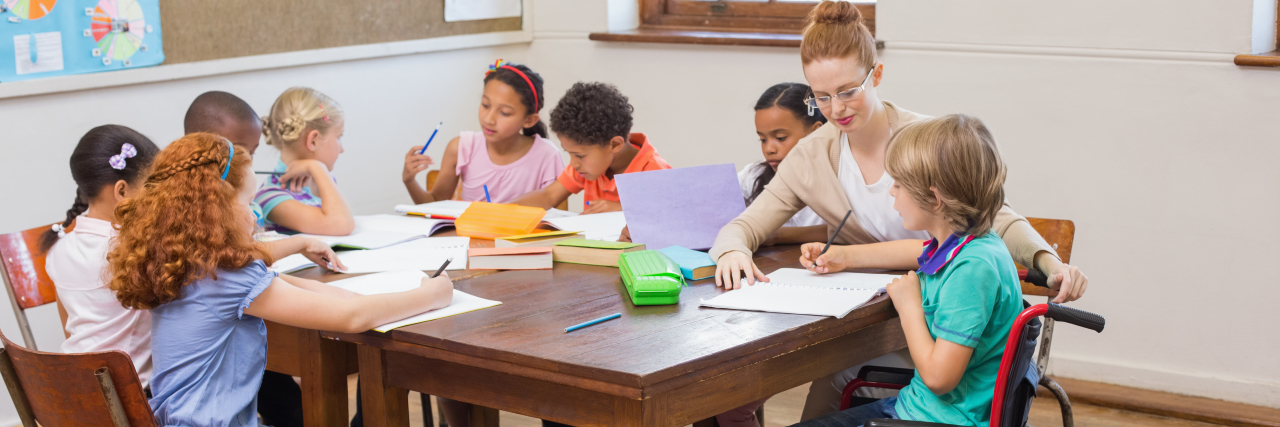Disabilities are still such a taboo topic in education. We still don’t even teach about the Disabled Civil Rights Movement in history classes. As educators, we are often discouraged from sharing our personal disabilities with our students. Why are we so scared to find people who might relate to our students who have disabilities? Why do we shy away from telling them our stories, when it could mean so much to even one student?
I grew up in the ’90s as an undiagnosed autistic kid with a serious congenital heart condition. My disabilities were invisible unless my scar on my chest from my multiple open-heart surgeries was showing. I was often teased and my dad moved me from five different schools by the time I was in third grade because he had issues with the schools following my 504 plan. He was in the front office all the time fighting and advocating. One of the main concerns was when I was forced to do something in PE that I wasn’t capable of doing. I loved that my dad was always there for me, but I also felt like no one got my disability. My Dad was overprotective, the teachers didn’t care, and I was just existing floating about the education system and no one knew what to do with me.
When I was in high school, I went through two surgeries. Although I was a straight-A student, and I seemed like I was doing great, I was actually struggling emotionally and mentally. I had PTSD, had developed a serious eating disorder, and was self-harming.
A little over five years ago, my life took me from working with adults with disabilities to working as a paraeducator in a high school. I was just starting to get into my online advocacy and speaking for the first time in my life about my disabilities. I had struggled my whole life with accepting my disability, but I realized writing about it had always helped me. So I took to Instagram and the internet with it. But I didn’t stop there, I shared my journey with my students.
I mostly work with high school students who are in mainstream classes who have ADHD, autism (low support needs), and other disabilities that are mostly invisible. When I had my third open-heart surgery in 2019, my students were curious and asked what was going on with me. Instead of dismissing them, I told them and answered any questions they had. I believe sharing my experience of being disabled with my students is important. They don’t often get to talk to someone older than them who has lived through some of the shared experiences we go through being disabled or neurodivergent. When we hide our disabilities as educators and encourage our students to do the same, we are telling them that they should be ashamed.
I’ve found in education, it still seems leaders are scared to hire people who have disabilities — especially those who have physical disabilities. In 2016, when I was hired, I hesitated to let my supervisors know my disability, as I knew I would be working as a paraeducator with disabled students. Since my disability is invisible, I can often get by without supervisors knowing about my disability until I feel the need to bring it up. But it’s an important issue that many disabled educators face, especially when working in the Special Education Department. If we have a disability ourselves and work with other disabled and neurodivergent students, our capability is often questioned.
It’s important to have the diversity of disabled people represented everywhere in education, especially in Special Education. Disabled educators can connect and advocate for other disabled and neurodivergent students because we’ve been in their shoes. I believe it’s important for students not just in special education, but in all classes, to be exposed to disability education and disabled educators. By having these important discussions in the classrooms, we can start teaching our children how to be inclusive and unlearn ableist ideas. Let’s start by hiring more disabled educators and opening the discussion to our children. I believe disabled teachers provide kids with an amazing opportunity to learn from adults who are like them, and to see they aren’t limited by society’s low expectations for them. I know it’s an opportunity I could have benefited from when I was in school.
Getty image by Wavebreak Media.

